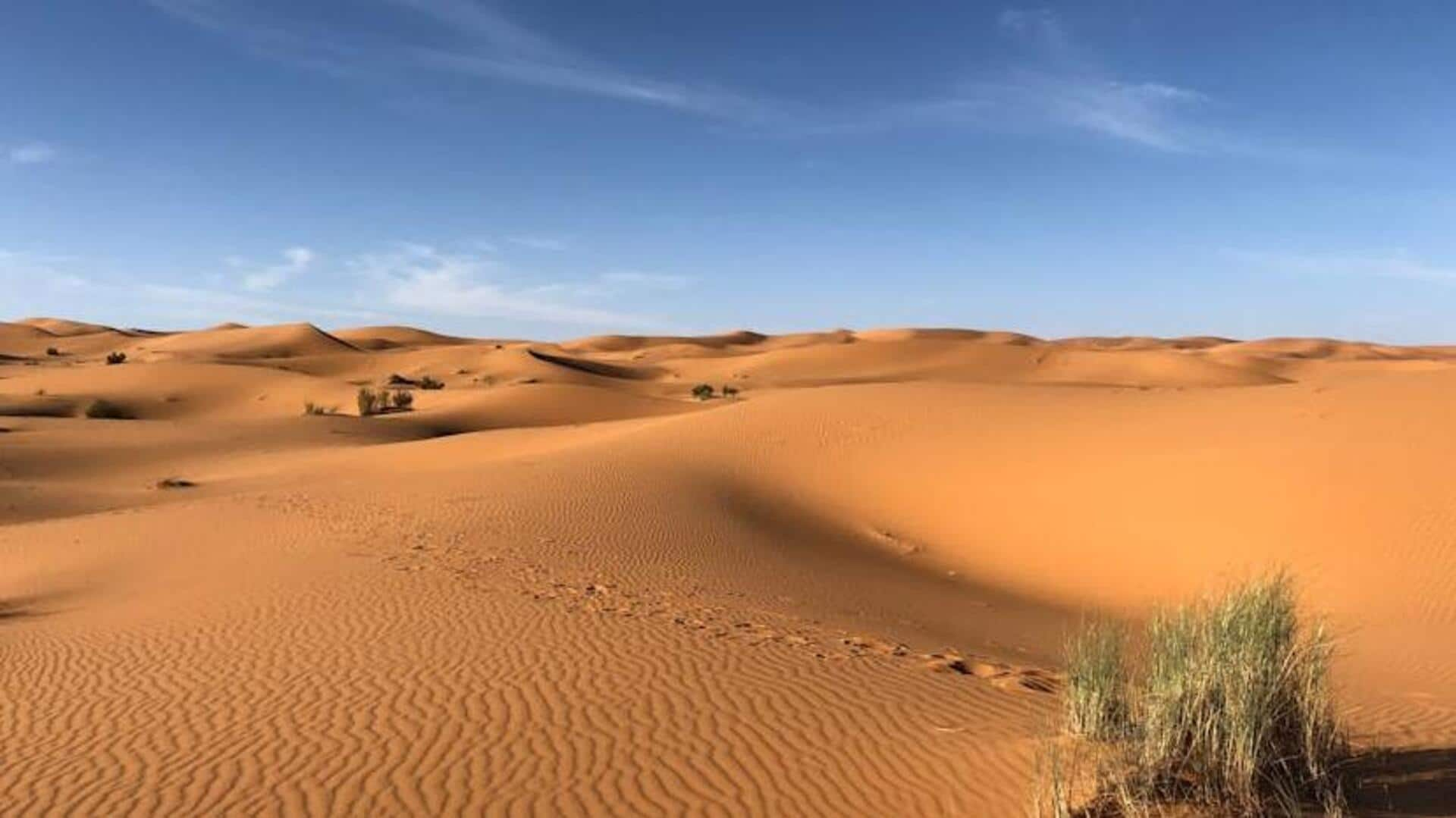
5 unusual traditions still alive in Algeria
What's the story
Algeria, a nation of vibrant contrasts, boasts a wealth of intriguing customs, particularly within the enigmatic expanse of the Sahara desert. These traditions serve as enduring links to the country's multifaceted past, while offering glimpses into the rhythms of life and the joyous occasions that punctuate the desert calendar. Discover five of the most unusual Saharan traditions that persist in the heart of Algeria.
Gathering
The Tinde gathering
The Tinde is more than a musical gathering. It's a heartbeat, a pulse, echoing from a drum crafted with mortar and goatskin, and played by women. At the heart of Tuareg celebrations, particularly weddings and festivals, the rhythmic throb of the Tinde drum, accompanied by women's voices, weaves an enchanting tapestry of femininity and community spirit.
Racing
Camel racing: A desert sport
Camel racing is a high-adrenaline sport that is an integral part of Algerian desert culture. Unlike the commercialized versions in the UAE, Algerian camel racing is a grassroots affair, often organized within local communities as part of festivals or special occasions. Riders as young as 10 demonstrate their skills in guiding these majestic creatures across the sandy landscape.
Ahellil
The art of ahellil
Ahellil is a UNESCO-protected musical tradition originating from the Gourara region in the Sahara. Primarily performed during major community events, this genre features poetic singing accompanied by rhythmic clapping and occasionally instruments. Groups form concentric circles around soloists who guide narratives praising history, valor, love, or religion. Ahellil provides entertainment while preserving the rich Amazigh (Berber) heritage.
Bathing
Sand bathing: Nature's spa
In the Saharan regions of Algeria, sand bathing has been a natural remedy for centuries, used to treat conditions such as rheumatism and skin diseases. During the summer, when temperatures reach over 45 degrees Celsius, people are buried in the hot sand up to their necks for periods of up to 15 minutes. They are then rapidly cooled down, demonstrating an ancient appreciation for nature's therapeutic power.
Caravans
The Saharan salt caravans
The ancient tradition of trading salt via caravans across the Sahara has been a cornerstone of life for over 1,000 years. While modern transportation methods have diminished its necessity, some communities continue this tradition on a smaller scale to preserve their cultural heritage. These caravans, while transporting salt, also functioned as moving marketplaces, exchanging goods such as dates, spices, and fabrics along routes connecting various oases.